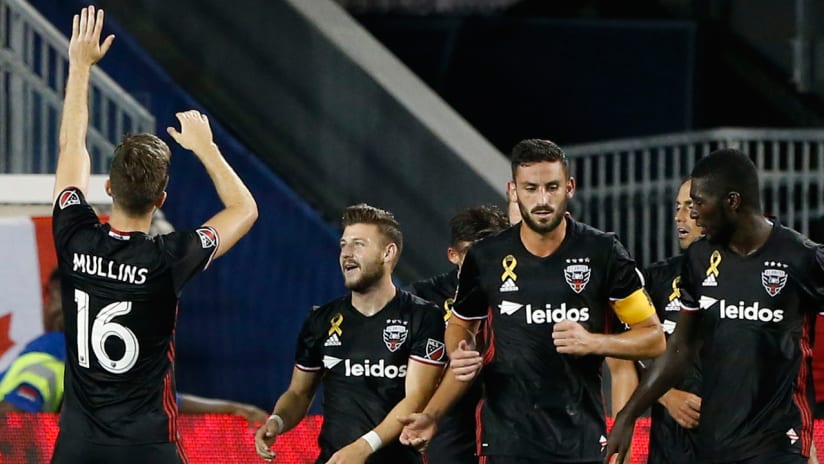“Don't do anything by half. If you love someone, love them with all your soul. When you go to work, work your ass off. When you hate someone, hate them until it hurts.”
– Henry Rollins
The MLS season has reached the phase in which most teams’ playoff destinies (or lack thereof) have become clear. Even the most optimistic coach can no longer pretend that a team out of the hunt can magically resurrect itself and overcome months of woe with a couple of good games.
In that regard, D.C. United’s hopes for 2017 were dashed some time ago. But they still got to have some fun 662415683" tabindex="0">on Wednesday night.
The Atlantic Cup rivalry between D.C. and the New York Red Bulls has lost a bit of shine lately, with the rise of New York City FC and the cross-Gotham showdown they brought into being. But it’s a hell of a matchup, with two decades of history, marked by some great games and legitimate bad blood over the years, and we got another reminder of its value with the 3-3 shootout that unfolded at Red Bull Arena.
The Red Bulls really needed a win, and given the teams’ respective places in the Eastern Conference standings, should have expected to get one 662415684" tabindex="0">on Wednesday. But they’re in a severe slump at the moment – it’s been a month and a half since their last victory – and their old enemies to the south were more than happy to prey upon their wavering confidence, sitting back and looking for mistakes to exploit.
United have already made a flurry of personnel moves with an eye towards the future, and Ben Olsen makes no secret of using these final weeks as auditions for next year’s debut campaign at under-construction Audi Field. Raining on RBNY’s parade – something they’ll try to do again when these teams meet again on the last day of the season, D.C.’s last-ever game at RFK Stadium – helps them do it with a nasty smile.
“Look, we’re playing for the Red Bulls to not make the playoffs,” said United defender Steve Birnbaum postgame. “It’s nothing new. They don’t like us, and we don’t like them. So, it would be nice to ruin that for them.”
In sporting terms, at least, hate can be helpful in situations like this.
Not that it’s mandatory, though. Last-place Colorado inflicted Houston's first home loss of the season in early September, and Minnesota knocked off three playoff-chasing sides in the past month – so many, in fact, that the Loons began to resemble a playoff-chasing side themselves.
People who watch MLS like to argue an awful lot about rivalries: Their legitimacy, who does and doesn’t qualify for the term, the perceived infatuation with the whole concept in general, you name it. But most supporters know very well which opponents they want to beat the most. They can feel it in their bones, and that collective knowledge usually transmits to the players.
D.C. will be savoring Wednesday’s result for a few days, just like Red Bulls fans will, sooner or later, feel a bit of extra sting in these two particular dropped points at home. Other straggling teams that get to play the spoiler role in the next few weeks will hunt for the small but significant satisfaction of having upset expectations, and it’s a factor we should be appreciative of as the final playoff spots get sewn up in October.
This juncture in the season can be problematic in other countries. If a team has fallen short of a place in the standings that would earn qualification to higher competitions, but has also moved clear of any relegation worries, motivation can be hard to come by.
That’s why Spanish soccer has the famous concept of “maletas,” the old legend of suitcases packed with money, wine, cigars or other inducements that supporters of one club have been known to send to another whose players might be in need of motivation in a match that affects the standings elsewhere.
In his memorable book “The Miracle of Castel di Sangro,” American writer Joe McGinniss chronicled how a small Italian club’s miraculous season of survival in the second-division ends with what he alleged was a match-fixing incident in the final game of the year, allowing another team to clinch promotion to the top flight after their own place in Serie B was assured.
He raged against what he saw as rank corruption, while depicting those around him as resigned to a logical, if cynical, outcome. The Castel di Sangro perspective might not know quite what to make of D.C. United and others who try to wreak havoc on MLS conventional wisdom this fall, but I know which one I’d rather be watching.













